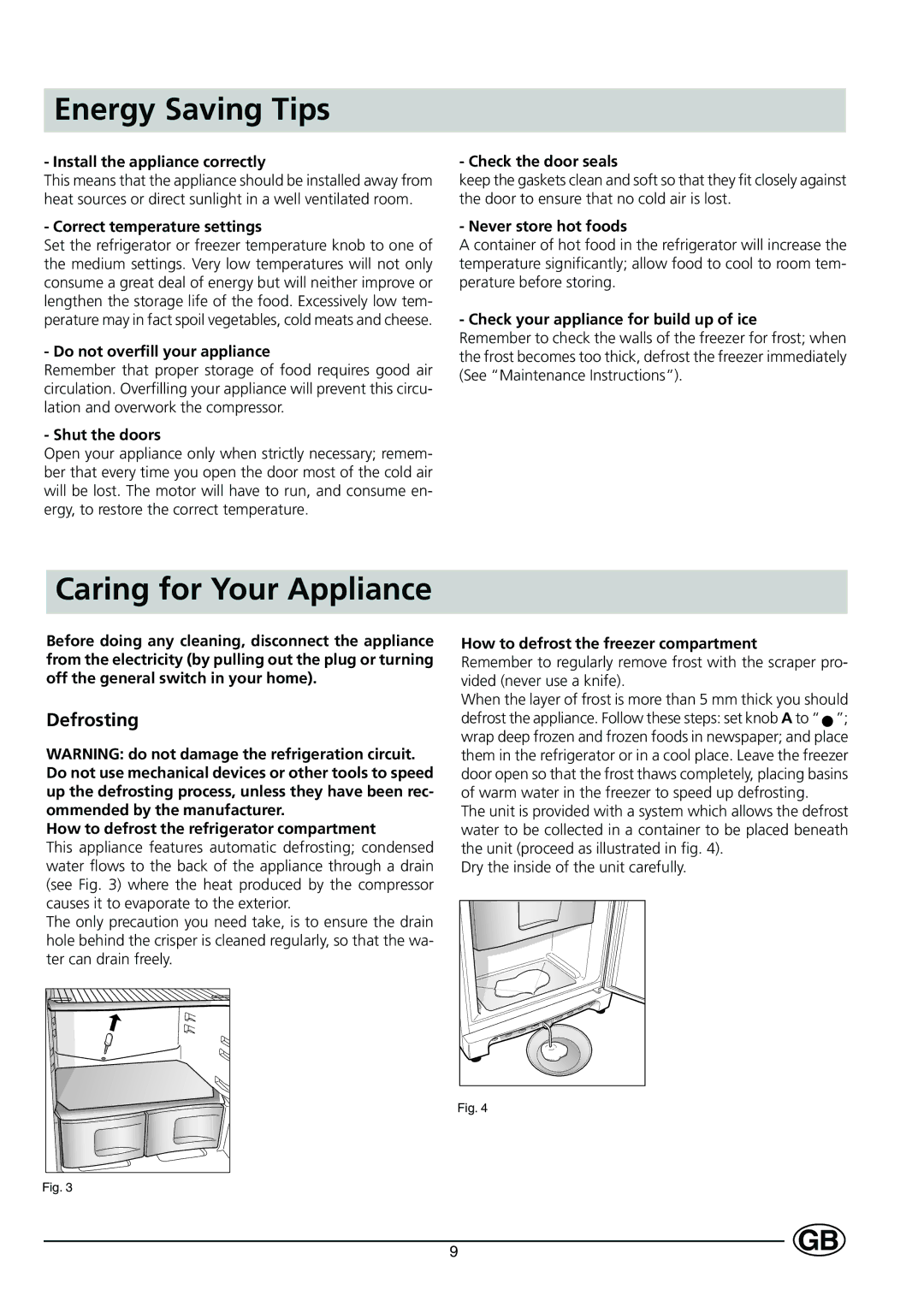
Energy Saving Tips
- Install the appliance correctly
This means that the appliance should be installed away from heat sources or direct sunlight in a well ventilated room.
- Correct temperature settings
Set the refrigerator or freezer temperature knob to one of the medium settings. Very low temperatures will not only consume a great deal of energy but will neither improve or lengthen the storage life of the food. Excessively low tem- perature may in fact spoil vegetables, cold meats and cheese.
- Do not overfill your appliance
Remember that proper storage of food requires good air circulation. Overfilling your appliance will prevent this circu- lation and overwork the compressor.
- Shut the doors
Open your appliance only when strictly necessary; remem- ber that every time you open the door most of the cold air will be lost. The motor will have to run, and consume en- ergy, to restore the correct temperature.
Caring for Your Appliance
Before doing any cleaning, disconnect the appliance from the electricity (by pulling out the plug or turning off the general switch in your home).
Defrosting
WARNING: do not damage the refrigeration circuit. Do not use mechanical devices or other tools to speed up the defrosting process, unless they have been rec- ommended by the manufacturer.
How to defrost the refrigerator compartment
This appliance features automatic defrosting; condensed water flows to the back of the appliance through a drain (see Fig. 3) where the heat produced by the compressor causes it to evaporate to the exterior.
The only precaution you need take, is to ensure the drain hole behind the crisper is cleaned regularly, so that the wa- ter can drain freely.
- Check the door seals
keep the gaskets clean and soft so that they fit closely against the door to ensure that no cold air is lost.
- Never store hot foods
A container of hot food in the refrigerator will increase the temperature significantly; allow food to cool to room tem- perature before storing.
- Check your appliance for build up of ice
Remember to check the walls of the freezer for frost; when the frost becomes too thick, defrost the freezer immediately (See “Maintenance Instructions”).
How to defrost the freezer compartment
Remember to regularly remove frost with the scraper pro- vided (never use a knife).
When the layer of frost is more than 5 mm thick you should defrost the appliance. Follow these steps: set knob A to “![]() ”; wrap deep frozen and frozen foods in newspaper; and place them in the refrigerator or in a cool place. Leave the freezer door open so that the frost thaws completely, placing basins of warm water in the freezer to speed up defrosting.
”; wrap deep frozen and frozen foods in newspaper; and place them in the refrigerator or in a cool place. Leave the freezer door open so that the frost thaws completely, placing basins of warm water in the freezer to speed up defrosting.
The unit is provided with a system which allows the defrost water to be collected in a container to be placed beneath the unit (proceed as illustrated in fig. 4).
Dry the inside of the unit carefully.
Fig. 4
Fig. 3
9/*
